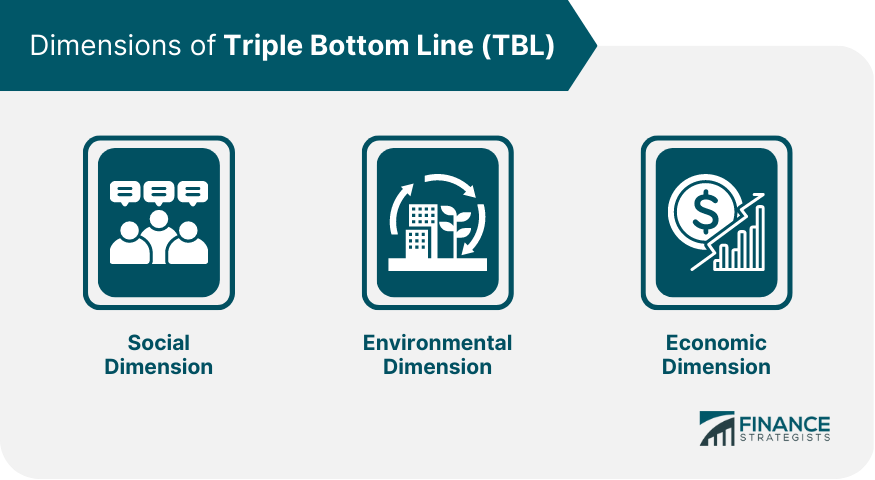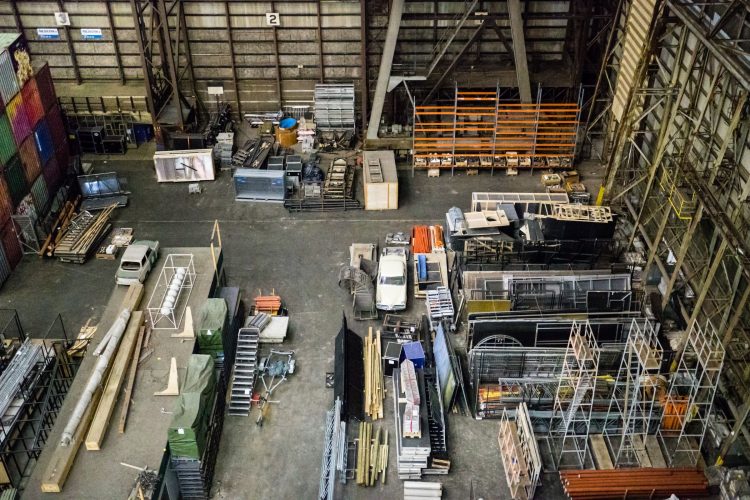As companies grapple with the challenges posed by environmental degradation and global poverty, the Triple Bottom Line framework offers a guiding light towards a harmonious coexistence of people, planet, and profits.

This much is clear: The business world is changing. And guess what? It’s about time. Companies are now realising that the old way of just focusing on cash isn’t going to cut it. Enter the Triple Bottom Line (TBL) – a fresh way of thinking about business, blending in social responsibility, taking care of our planet, and, yes, still making a decent penny. Let’s break it down.
What’s the big idea?
Back in 1994, when many of us were adjusting to a world beginning to speed up, a gentleman named John Elkington from Britain came up with a concept that encouraged us to pause and think. His idea? The Triple Bottom Line (TBL). Elkington proposed that a company’s success shouldn’t just be measured in pounds and pennies. Instead, businesses should also be accountable for their impact on people and our planet.
Dr Marcus Watson, Executive Director at UK-based ground maintenance company Ground Control, said, in my podcast, that the way his firm goes about TBL is to actually invest in tech and people to help achieve the outcome of caring for the environment. “We maintain the external space; we create landscapes, we manage vegetation — we plant trees and vegetation. What’s particularly interesting about having the environment at the forefront of our minds is that it drives us to make certain decisions that have actually proven to be financially beneficial.”

Back in 1994, when many of us were adjusting to a world beginning to speed up, a gentleman named John Elkington from Britain came up with a concept that encouraged us to pause and think. His idea? The Triple Bottom Line (TBL). Elkington proposed that a company’s success shouldn’t just be measured in pounds and pennies. Instead, businesses should also be accountable for their impact on people and our planet.

Dr Marcus Watson, Executive Director at UK-based ground maintenance company Ground Control, said, in my podcast, that the way his firm goes about TBL is to actually invest in tech and people to help achieve the outcome of caring for the environment. “We maintain the external space; we create landscapes, we manage vegetation — we plant trees and vegetation. What’s particularly interesting about having the environment at the forefront of our minds is that it drives us to make certain decisions that have actually proven to be financially beneficial.”
He goes on to add that if we look at the investments going into businesses that have green credentials and sustainability at their heart and a purpose beyond profit, they receive more investment, are more profitable, and more valuable than companies that do not. Over time, companies that are not sustainable will reduce their profitability as consumers shift their business to responsible firms. A new survey by Bain and EcoVadis supports Watson’s view. The researchers found that companies at the forefront of sustainable procurement also have a profitability edge, with margins 3 percentage points above those that don’t focus on their suppliers’ ethics, environmental, and labour practices.
Understanding TBL
The Triple Bottom Line (TBL) approach provides a comprehensive view of a business’s role. It zeroes in on three primary areas: People, Planet, and Profits. The “people” pillar highlights the significant impacts businesses can have on communities, employees, and stakeholders. Take Patagonia, the renowned outdoor apparel brand, for instance. They have set benchmarks in this domain by offering fair wages, championing a work-life balance, and aiding communities through initiatives like Patagonia Action Works. Another fashion label recognised for its scientifically grounded sustainable practices is Pangaia, notably through its use of FLWRDWN™, a plant-based alternative to traditional down insulation created from wildflowers and biopolymers. This reduces reliance on harmful animal-derived or synthetic materials. Pangaia also employs recycled and biodegradable packaging, minimising the environmental impact of shipping and delivery.

The “planet” dimension is about a company’s dedication to the environment. This involves reducing one’s carbon footprint, judiciously using resources, and protecting our Earth. Praveen Tiwari of Netsol Water provides valuable insight here. He says: “By focusing on reducing pollution, conserving water resources, and minimising the environmental impact of wastewater treatment, a wastewater management company can contribute to a healthier ecosystem. This includes treating wastewater to stringent standards, minimising energy consumption, and reducing the release of harmful pollutants into water bodies.”
Lastly, the “profits” pillar remains crucial, but it’s redefined to favour sustainability and long-term success over quick wins. Companies that lean into this approach often enjoy a loyal customer base, a strong brand image, and reduced risks. Reinforcing this perspective, Tiwari notes, “The company can contribute to community development by providing clean water resources, supporting educational initiatives, and creating jobs, which in turn boosts its reputation and shareholder value.”
The “planet” dimension is about a company’s dedication to the environment. This involves reducing one’s carbon footprint, judiciously using resources, and protecting our Earth. Praveen Tiwari of Netsol Water provides valuable insight here. He says: “By focusing on reducing pollution, conserving water resources, and minimising the environmental impact of wastewater treatment, a wastewater management company can contribute to a healthier ecosystem. This includes treating wastewater to stringent standards, minimising energy consumption, and reducing the release of harmful pollutants into water bodies.”

Lastly, the “profits” pillar remains crucial, but it’s redefined to favour sustainability and long-term success over quick wins. Companies that lean into this approach often enjoy a loyal customer base, a strong brand image, and reduced risks. Reinforcing this perspective, Tiwari notes, “The company can contribute to community development by providing clean water resources, supporting educational initiatives, and creating jobs, which in turn boosts its reputation and shareholder value.”
Some companies following this approach
- Danone: This multinational food-products corporation has committed to a business model that emphasises health and sustainability. Danone’s B Corp certification and “One Planet. One Health” vision exemplifies the firm’s dedication to the TBL principles. By prioritising eco-friendly packaging, supporting regenerative agriculture, and promoting health and well-being, Danone has not only improved its reputation but has also reported increased brand loyalty among consumers.
- Ben & Jerry’s: The premium ice cream company has seamlessly integrated its social and environmental values into its business operations. From sourcing fair-trade ingredients to advocating for social justice causes, Ben & Jerry’s has harnessed the power of the TBL framework to resonate with socially conscious consumers.
- Unilever: Global consumer goods company Unilever’s Sustainable Living Plan – launched in 2010 – outlines the company’s commitment to improving the well-being of people and the planet while driving growth. The plan includes ambitious goals such as reducing the environmental impact of its products, enhancing the livelihoods of smallholder farmers, and promoting hygiene and sanitation. Unilever’s efforts to address social and environmental challenges not only contribute to a positive brand image but also drive innovation and operational efficiency.


Some companies following this approach
- Danone: This multinational food-products corporation has committed to a business model that emphasises health and sustainability. Danone’s B Corp certification and “One Planet. One Health” vision exemplifies the firm’s dedication to the TBL principles. By prioritising eco-friendly packaging, supporting regenerative agriculture, and promoting health and well-being, Danone has not only improved its reputation but has also reported increased brand loyalty among consumers.
- Ben & Jerry’s: The premium ice cream company has seamlessly integrated its social and environmental values into its business operations. From sourcing fair-trade ingredients to advocating for social justice causes, Ben & Jerry’s has harnessed the power of the TBL framework to resonate with socially conscious consumers.
- Unilever: Global consumer goods company Unilever’s Sustainable Living Plan – launched in 2010 – outlines the company’s commitment to improving the well-being of people and the planet while driving growth. The plan includes ambitious goals such as reducing the environmental impact of its products, enhancing the livelihoods of smallholder farmers, and promoting hygiene and sanitation. Unilever’s efforts to address social and environmental challenges not only contribute to a positive brand image but also drive innovation and operational efficiency.
So, what’s the takeaway? Business, as we once knew it, is evolving in the most fabulous way. The future’s looking bright, not just in green, but in a myriad of colours that celebrate a more inclusive, caring, and sustainable business world. So, next time you indulge in a Ben & Jerry’s scoop or wear that Patagonia jacket, remember – you’re supporting a revolution. Cheers to businesses that care!

